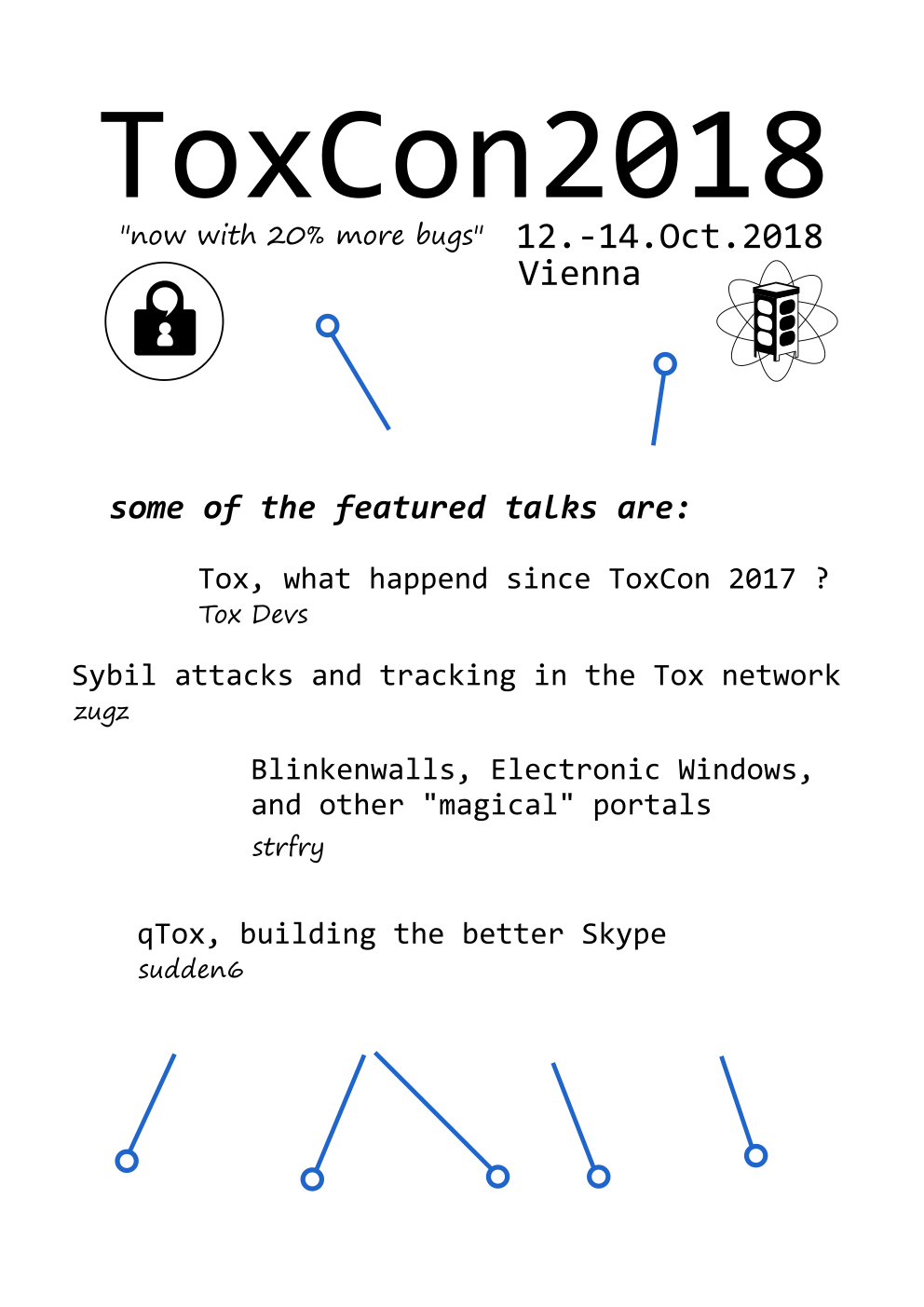Feed digilinux.ru [copy] http://digilinux.ru/feed/ has loading error: cURL error 22: The requested URL returned error: 403 Forbidden
Feed freepost [copy] https://freepo.st/rss/new has loading error: cURL error 22: The requested URL returned error: 500
Don't sign a CLA
A large minority of open-source projects come with a CLA, or Contributor License Agreement, and require you to sign one before they’ll merge your patch. These agreements typically ask you to go above and beyond the rights you afford the project by contributing under the license the software is distributed with. And you should never sign one.
Free and open source software licenses grant explicit freedoms to three groups: the maintainers, the users, and the contributors. An important freedom is the freedom to make changes to the software and to distribute these changes to the public. The natural place to do so is by contributing to the upstream...
Sway & wlroots at XDC 2018
Just got my first full night of sleep after the return flight from Spain after attending XDC 2018. It was a lot of fun! I attended along with four other major wlroots contributors. Joining me were Simon Ser (emersion) (a volunteer) and Scott Anderson (ascent12) of Collabora, who work on both wlroots and sway. ongy works on wlroots, hsroots, and waymonad, and joined us on behalf of IGEL. Finally, we were joined by Guido Günther (agx) of Purism, who works with us on wlroots and on the Librem 5. This was my first time meeting most of them face-to-face!
wlroots was among the highest-level software represented at XDC. Most of the attendees are hacking on...
Getting started with qemu
I often get asked questions about using my software, particularly sway, on hypervisors like VirtualBox and VMWare, as well as for general advice on which hypervisor to choose. My answer is always the same: qemu. There’s no excuse to use anything other than qemu, in my books. But I can admit that it might be a bit obtuse to understand at first. qemu’s greatest strength is also its greatest weakness: it has so many options that it’s hard to know which ones you need just to get started.
qemu is the swiss army knife of virtualisation, much like ffmpeg is the swiss army knife of multimedia (which comes...
Conservative web development
Today I turned off my ad blocker, enabled JavaScript, opened my network monitor, and clicked the first link on Hacker News - a New York Times article. It started by downloading a megabyte of data as it rendered the page over the course of eight full seconds. The page opens with an advertisement 281 pixels tall, placed before even the title of the article. As I scrolled down, more and more requests were made, downloading a total of 2.8 MB of data with 748 HTTP requests. An article was weaved between a grand total of 1419 vertical pixels of ad space, greater than the vertical resolution of...
ToxCon 2018 Update

As promised, here is more information on ToxCon 2018.
Tox developer community will be holding the conference from Friday, October 12th, to Sunday, October 14th — a 3 day event, at Metalab Vienna, a hackerspace located in the heart of Vienna, Austria. We have many talks prepared for you: from the progress Tox has made in the last 12 months, to security-related and other interesting topics. The the full schedule of the event is available online and there is also an Android app that you can use to get updates if more talks get added.
If you would like to learn more...
How to make a self-hosted video livestream
I have seen some articles in the past which explain how to build the ecosystem around your video streaming, such as live chat and forums, but which leave the actual video streaming to Twitch.tv. I made a note the last time I saw one of these articles to write one of my own explaining the video bit. As is often the case with video, we’ll be using the excellent ffmpeg tool for this. If it’s A/V-related, ffmpeg can probably do it.
Note: a demonstration video was previously shown here, but as traffic on this article died down I took it offline to reduce unnecessary load.
ffmpeg has a...
The Commons Clause will destroy open source
An alarmist title, I know, but it’s true. If the Commons clause were to be adopted by all open source projects, they would cease to be open source1, and therefore the Commons clause is trying to destroy open source. When this first appeared I spoke out about it in discussion threads around the net, but didn’t think anyone would take it seriously. Well, yesterday, some parts of Redis became proprietary software.
The Commons Clause promoted by Kevin Wang presents one of the greatest existential threats to open source I’ve ever seen. It preys on a vulnerability open source maintainers all suffer from, and one I can strongly relate to....
I don't trust Signal
Occasionally when Signal is in the press and getting a lot of favorable discussion, I feel the need to step into various forums, IRC channels, and so on, and explain why I don’t trust Signal. Let’s do a blog post instead.
Off the bat, let me explain that I expect a tool which claims to be secure to actually be secure. I don’t view “but that makes it harder for the average person” as an acceptable excuse. If Edward Snowden and Bruce Schneier are going to spout the virtues of the app, I expect it to actually be secure when it matters - when vulnerable people using...